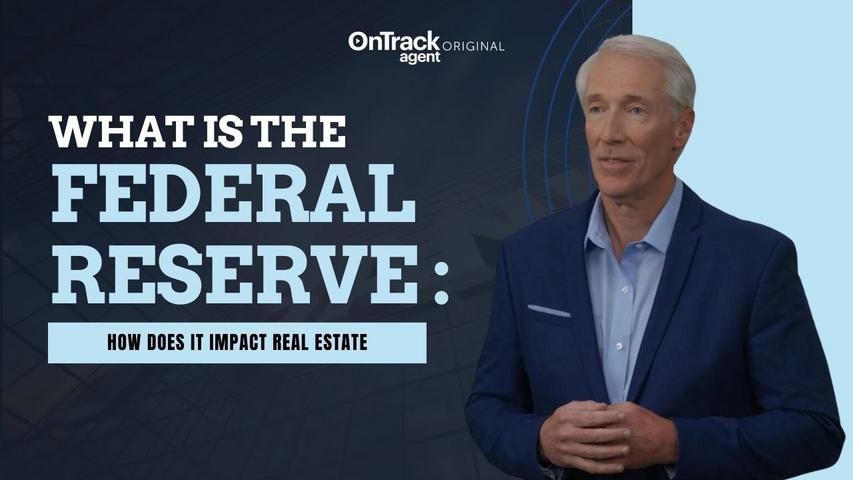You must be logged in to post a review.

Video will be visible after purchase
What is the Federal Reserve
1 Credits
The Federal Reserve,
Or the Fed, is the central bank of the United States. It plays a key role in shaping the nation’s economy. For real estate agents, understanding what the Federal Reserve is, how it operates and how its policies influence mortgage interest rates and the broader economy can provide valuable insights for making strategic decisions and advising your clients. While the Fed’s policies impact mortgage rates, they do not set the mortgage interest rate.
What is the Federal Reserve?
The Federal Reserve is the U.S. central banking system, established in 1913 to provide stability and safety to the financial system. It has several key functions, including regulating monetary policy, overseeing the banking system, and maintaining financial stability.
The Federal Reserve’s actions directly affect economic conditions, including inflation, employment and short term interest rates. These policies, in turn, have significant influence on the real estate market, particularly in terms of borrowing costs, home prices , and market liquidity.
Structure of the Federal Reserve.
The Federal Reserve is organized into three main components:
- The Board of Governors: This seven-member board oversees the Federal Reserve and sets board policy guidelines. The President appoints the members, who serve 14-year terms, with one member selected as the Chair. The Chair is the most visible figure in shaping the Fed’s monetary policy, which directly impacts interest rates and, by extension, influences real estate markets.
- The 12 Regional Federal Reserve Banks: These regional banks serve various districts across the U.S., carrying out the Fed’s policies at the local level. They also provide services to financial institutions and collect data on economic conditions, which helps inform policy decisions.
- The Federal Open Market Committee (FOMC): The FOMC is responsible for making key decisions about the U.S. monetary policy, including setting the federal funds rate. This rate is NOT the mortgage interest rate. The federal funds rate is the benchmark for Treasury bills and other short-term securities. Put more simply, it’s the rate banks charge each other for money they loan one another.
If the Federal Reserve Doesn’t Choose Mortgage Interest Rates, What Does?
Put in the simplest of terms, mortgage rates are closely tied to bond prices like the U.S. Treasury Bonds or mortgage-backed securities. Mortgage rates are closely linked to bonds because banks use bonds as a way to make money cheaply. Banks buy bonds at a fixed price and interest rate for a set period. The return, also known as a yield, helps determine how high or low banks set mortgage rates. As mortgage prices increase on the secondary market for lenders, mortgage rates decrease.
What Real Estate Agents Need to Know About the Federal Reserve
As a real estate agent, understanding what the Federal Reserve is and how it operates is essential for navigating the housing market. The Fed’s policies have far-reaching effects on mortgage rates, inflation, housing affordability, and the overall health of the economy. By keeping an eye on the Fed’s decision, agents can:
- Anticipate when mortgage rates might rise or fall, allowing you time to time property sales and advise clients on the best times to buy or refinance.
- Understand how Fed actions may influence the broader economy, including employment levels, consumer spending, and investment in real estate.
- Educate your clients on how the Fed’s decisions impact the cost of borrowing and how that might affect their future goals.
The Fed Uses 2 Main Types of Policies:
Expansionary = when the economy is struggling and unemployment is high. The Fed releases the flow of money to encourage more activity. The Fed lowers the bank rate, making borrowing cheaper.
Contractionary = also known as restrictive monetary policy is used when inflation is too high. The Fed restricts the flow of money to slow spending or borrowing, which helps cool down the economy and lower prices of goods and services.
Ultimately, the Federal Reserve’s monetary policies play a pivotal role in the real estate market, and understanding what the Federal is and how it impacts the flow of money can help you make more informed decisions and better serve your clients.
Buy Now

Reviews
There are no reviews yet.